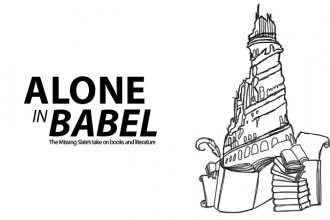Cairo’s burning as I write this. Mubarak is clinging to power. Ben Ali is already long gone. Israeli-Palestinian negotiations have been exposed as shambolic.  In this steady rearrangement of power, what role does writing have to play?
Marx’s statement that ‘The philosophers have only interpreted the world, in various ways. The point, however, is to change it’ is engraved on his tomb in Highgate Cemetery. Could that statement be applied to writers? In most circumstances, there are good reasons for preferring an ambiguous interpretation of the world to a didactic call for change, but in certain situations it is no longer acceptable to remain silent. Solzhenitsyn exposed the cruelty of the Gulags; Nadine Gordimer was among the most prominent voices to speak out against apartheid. Both must surely be regarded as rightful winners of the Nobel Prize.
The writing career of last year’s Nobel Laureate, Mario Vargas Llosa, has often been unashamedly political. In 1990, he ran for the Peruvian presidency, only to be defeated in a run-off by Alberto Fujimori. Although Vargas Llosa has moved with sometimes dispiriting steadiness from the left to the right of the (simplified) political spectrum, he has consistently opposed dictatorships and authoritarian governments, and he has continued to believe that writing has the power to transform a society:
‘Let those who doubt that literature not only submerges us in the dream of beauty and happiness but alerts us to every kind of oppression, ask themselves why all regimes determined to control the behaviour of citizens from cradle to grave fear it so much they establish systems of censorship to repress it and keep so wary an eye on independent writers.’
The Feast of the Goat, his most overtly political novel, deals with one of those ‘regimes determined to control the behaviour of citizens from cradle to grave’: the regime of Rafael Trujillo in the Dominican Republic. The narrative splits into three key strands – one strand following Trujillo, one following his assassins, and one following Urania Cabral, returning to the country thirty-five years after Trujillo’s death.
As a fourteen year old, Urania was ‘sold’ to Trujillo by her father, AgustÃn, a (fictional) high-ranking government official desperate to keep his place within the hierarchy of power. A fortnight before Trujillo dies, Urania is driven to his ‘Mahogany House’, which she describes as a ‘Kitsch monument.’ There, overlooked by photos of himself with his grandchildren, Trujillo undresses Urania ‘carefully, as if a sudden movement of his fingers could shatter the girl’, but becomes increasingly frustrated as she cringes away from his kisses. Urania realises that he ‘agreed to the young daughter of AgustÃn Cabral coming to Mahogany House only to prove that Rafael Leonidas Trujillo Molina despite his seventy years, despite his prostate problems, despite his headaches with priests, Yankees, Venezuelans, conspirators, was still a real man, a stud with a prick that could still get hard and break all the virgin cherries that came his way.’
Trujillo fails:Â he is powerless, incontinent, impotent. Vargas Llosa gives the reader a disturbing, unforgettable scene in which the old dictator, with red eyes and ‘yellowish, feverish’ pupils, mounts Urania, forces his fingers into her and then subsides on the bed, sobbing. We’re shown the sparse white hairs on his nipples and navel, the ugly stains on the bedsheets, the ‘soft belly, white pubis, small, dead sex, hairless legs’ of ‘the Generalissimo, the Benefactor of the Nation, the Father of the New Nation, the Restorer of Financial Independence.’
The hyperbolic titles return to mock Trujillo. A regime propped up by a cult of machismo culminates in Vargas Llosa’s devastating set-piece: El Jefe at the end of his last sexual encounter, hairless and effete. If the scene has any message, that message must be that a fine line separates power from powerlessness. Vargas Llosa has spent his entire writing life believing that literature can demonstrate the frailness of that dividing line and expose the fragility and the fear that lie behind supreme power. This week, more than ever, we have to believe, or hope, that his quest will not be futile.




